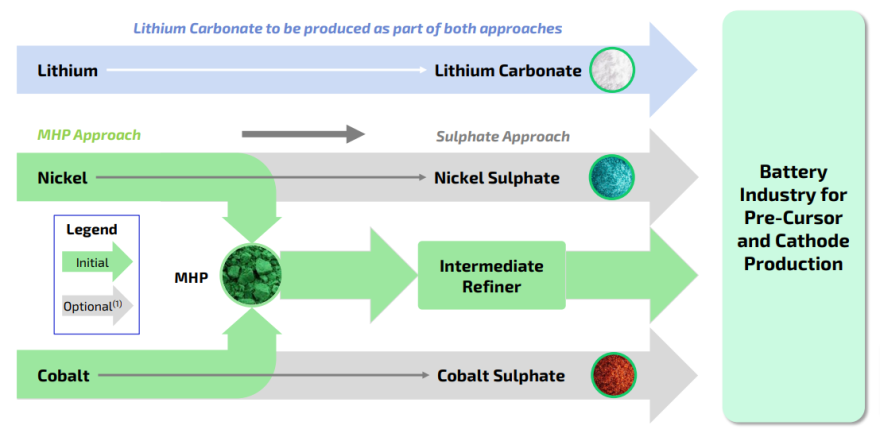Li-Cycle estimates it will cost at least $508 million to complete its recycling hub for lithium-ion batteries at Eastman Business Park.
And that would be a scaled-back version of what originally was envisioned.
But the Canadian firm said it fully intends to restart construction after pausing work last fall.
Speaking to investors Tuesday, Li-Cycle officials gave no timeline but said they will be working to re-enlist contractors and suppliers while also seeking to extend payment plans on debts the company owes them.

"The key thing that we need to get done in the coming period is really this subcontractor bidding,” said Li-Cycle CEO Ajay Kochhar. “So before we can start talking about timeline and where that's going to be, you know we have a view, but that needs to be informed by the folks that's going to do the work.”
He added: “Where we stand today, we're still reviewing.”
Kochhar and his colleagues pressed the growing need for their product — from electric vehicles to consumer electronics — in North America and Europe.
The company takes in everything from scrap material to full batteries and breaks it all down, producing basic metals for reuse. Some of that operation was built and functioning, with construction underway on the hub portion of its spoke-and-hub model.
Li-Cycle's original plan was to produce multiple streams of finished product for sale to battery manufacturers. The revised plan would send some of the product to an intermediate — or third-party — refiner before it goes to market. That doesn't preclude doing the full processing one day, officials said, but it makes more economic sense given the current market conditions.

The hub was to create 250 local jobs. It’s unclear if that number still holds.
"We haven't done the final job numbers yet," Kochhar said in the interview. "But ... it's still a fully fledged commercial facility with a good level of jobs. We've got to finish the plans around what that is precisely, but I wouldn't expect that (jobs projection) to be so impinged by this choice."
Li-Cycle first must find the money to finish building it.
“They remain a company in (a) poor financial situation with the clock running out,” said Ethan Wade, senior vice president and chief development officer at Brighton Securities.
Despite company assurances, questions persist about the future of the local operation — fueled most recently by the company's own wording in its latest earnings report. When referring to the inability to develop the Rochester hub, the company added the words: “as anticipated, or at all.”
"Our top priority is build the Rochester hub, which has a series of steps: re-engage subcontractors, get the DOE closed, get the full funding solution in place," Kochhar said in a phone interview Tuesday afternoon. "To be blunt. I wouldn't have spent the last five months not sleeping if that wasn't the intent.
"Sorry to be so candid, but it's pretty annoying, to be honest."
Li-Cycle officials initially expected the project to cost $480 million, then revised that to $560 million before shutting down as estimates soared to as much as $1 billion.
Kochhar has balked at the idea that Li-Cycle might not resume construction, saying in November: “We have $390 million that we've invested in the facility already, between the buildings and all the equipment. We're not walking away from that. That is number one.”
Li-Cycle now reports spending $452 million through Dec. 31, 2023 — and incurring another $115 million in costs that it has not yet paid.
A potential $375 million loan from the U.S. Department of Energy is still in discussion. Kochhar said the potential funding level has not changed. And the company recently announced an infusion of $75 million from business partner Glencore. But Li-Cycle "will require significant additional funding” to get the local project going again, Kochhar said. Those bills could go higher with startup and financing costs.
In the meantime, the company is continuing to seek ways to cut costs, even if it means slowing production — all in an effort to buy time.
Since the shutdown, Kochhar said, the company has done considerable work refining estimates and expectations. Part of that was confirming the economic viability of the end products with the revised hub design.
"So that's good, right?" he said. "If that didn't come up positive, then of course, there's bigger concerns. So I think that's the area to focus on. And then lastly, is just the importance to the U.S."
While the electric vehicle market growth has slowed, it's still growing — more than many other industries.
"So that means we see from our customers still lots of batteries coming forward, lots of materials coming forward that need to be recycled ... which then underpins the need for this plant — and it doesn't go away."





